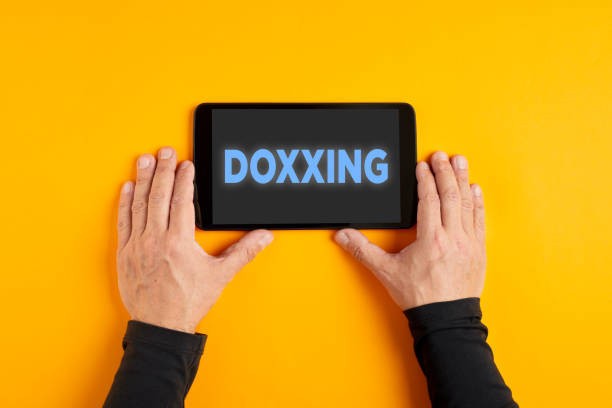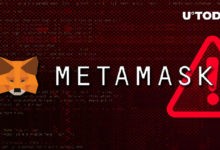What Is Crypto Doxxing?

Crypto doxxing is a term used to describe the practice of publicly revealing the personal information of an individual who is involved in the cryptocurrency industry. This information may include their name, address, phone number, email address, social media accounts, and other personal details that can be used to identify them.
The practice of doxxing has been around for many years, but it has become more prevalent in recent years with the rise of social media and the internet. Doxxing can have serious consequences for individuals, as it can lead to harassment, stalking, and even physical harm.
In the context of cryptocurrency, doxxing is often used as a form of revenge or to expose individuals who are believed to be engaged in unethical or illegal activities. This can include cryptocurrency scammers, fraudsters, and hackers who have stolen funds from investors or crypto exchanges.
In some cases, doxxing can be used to expose individuals who are involved in controversial or sensitive topics, such as political activism or whistleblowing. This can put these individuals at risk of harassment or retaliation from those who disagree with their views or actions.
One example of crypto doxxing occurred in 2019 when a group of anonymous individuals began publishing the personal information of cryptocurrency influencers on social media. The group claimed that these influencers were promoting fraudulent or scammy projects and were profiting off the backs of their followers.
The doxxing campaign quickly gained traction on social media, with many people calling for the influencers to be held accountable for their actions. Some even went so far as to threaten physical violence against the individuals.
While some may argue that doxxing is a form of free speech and a way to hold individuals accountable for their actions, it is important to recognize the potential dangers and negative consequences of this practice. Doxxing can lead to serious harm, both physical and psychological, and can have a chilling effect on free speech and open discussion.
In addition, doxxing can be inaccurate and can lead to innocent individuals being targeted and harassed. This can have devastating consequences for these individuals and their families.
There are also legal consequences to doxxing, as it can be considered a violation of privacy laws and can lead to civil and criminal charges. In some cases, individuals who engage in doxxing may face fines, imprisonment, or other legal penalties.
In order to protect themselves from doxxing, individuals involved in the cryptocurrency industry should take steps to protect their personal information. This can include using pseudonyms or aliases on social media and avoiding sharing personal details publicly.
In addition, individuals should be cautious about the information they share online and should avoid engaging in controversial or sensitive topics that could make them a target for doxxing.
Cryptocurrency exchanges and other companies in the industry can also take steps to protect their customers from doxxing. This can include implementing strong privacy policies and security measures to prevent unauthorized access to customer information.
It is important for individuals and companies in the cryptocurrency industry to speak out against doxxing and to promote a culture of respect and civility. By standing up against doxxing and other forms of harassment, we can create a safer and more inclusive community for everyone involved in the industry.
When Is Crypto Doxxing Illegal
Crypto doxxing can be illegal when it violates privacy laws or when it is used to harass, intimidate, or threaten individuals. The legality of doxxing can vary depending on the jurisdiction, but in general, it can be considered a violation of privacy laws if it involves the unauthorized disclosure of personal information.
For example, in the United States, the Computer Fraud and Abuse Act (CFAA) prohibits unauthorized access to computer systems, including the unauthorized disclosure of personal information. If an individual obtains personal information through illegal means, such as hacking into a computer system, and then publishes that information online, they could be charged under the CFAA.
In addition, doxxing can be considered illegal if it is used to harass, intimidate, or threaten individuals. This can include posting personal information online with the intent to incite violence or to cause emotional distress to the individual.
Many jurisdictions have laws that prohibit stalking, harassment, and threats, which can apply to doxxing. In some cases, doxxing can also be considered a form of defamation if the published information is false and damages the reputation of the individual.
Overall, the legality of doxxing depends on the specific circumstances and the laws of the jurisdiction in which it occurs. It is important for individuals to be aware of the potential legal consequences of doxxing and to refrain from engaging in this behavior.






 Bitcoin
Bitcoin  Ethereum
Ethereum  Tether
Tether  USDC
USDC  TRON
TRON  Dogecoin
Dogecoin  Cardano
Cardano  Bitcoin Cash
Bitcoin Cash  Monero
Monero  Chainlink
Chainlink  LEO Token
LEO Token  Stellar
Stellar  Zcash
Zcash  Litecoin
Litecoin  Hedera
Hedera  Dai
Dai  Cronos
Cronos  OKB
OKB  Tether Gold
Tether Gold  Ethereum Classic
Ethereum Classic  KuCoin
KuCoin  Cosmos Hub
Cosmos Hub  Gate
Gate  Algorand
Algorand  Dash
Dash  VeChain
VeChain  Tezos
Tezos  Stacks
Stacks  TrueUSD
TrueUSD  Decred
Decred  IOTA
IOTA  Theta Network
Theta Network  Basic Attention
Basic Attention  NEO
NEO  Synthetix
Synthetix  Qtum
Qtum  0x Protocol
0x Protocol  Ravencoin
Ravencoin  Zilliqa
Zilliqa  DigiByte
DigiByte  Nano
Nano  Siacoin
Siacoin  Numeraire
Numeraire  Waves
Waves  Ontology
Ontology  Enjin Coin
Enjin Coin  Status
Status  BUSD
BUSD  Hive
Hive  Pax Dollar
Pax Dollar  Lisk
Lisk  Steem
Steem  Huobi
Huobi  OMG Network
OMG Network  Bitcoin Gold
Bitcoin Gold  NEM
NEM  Augur
Augur